In the first 11 months of 2024, Vietnam - Sweden trade recorded a growth rate of 11.8%, reflecting a positive recovery in trade relations between the two countries.
Two-way trade increases
2024 marks an important milestone as Vietnam and Sweden celebrate the 55th anniversary of diplomatic relations (1969-2024). This is a sustainable partnership, built on the foundation of traditional cooperation, trust and valuable support from Sweden to Vietnam in the past and present.
Speaking to reporters of the Industry and Trade Newspaper, Ms. Nguyen Thi Hoang Thuy - Director, Head of the Vietnam Trade Office in Sweden, concurrently in charge of the Northern European market, said that in order to increase two-way trade turnover, in 2024, on the occasion of the 55th anniversary of establishing diplomatic relations, the Trade Office has organized many activities to promote trade.
Specifically, the Vietnam - Sweden Business Forum, held on September 6, 2024 in Stockholm with the theme “Digital Transformation - Energy Transformation - Innovation: Cooperation for a Sustainable Development Future”, opened up opportunities for businesses from both countries to learn about policies and discuss potential cooperation in key areas such as renewable energy, digital technology and green transformation. Five memorandums of understanding (MOUs) were signed at the event, including cooperation between the Vietnam Trade Office in Sweden and Business Sweden, along with agreements between major ports such as Saigon Newport and Gothenburg Port, demonstrating the promising potential for economic and trade cooperation between the two countries.
Talking to reporters of the Industry and Trade Newspaper, Mr. Bui Van Quy - Chairman of the Southeast Asian Seaports Association, Deputy General Director of Tan Cang Saigon - the unit that signed the cooperation agreement with Gothenburg Port, expected that the memorandum of cooperation would help promote the market and exchange experiences in port operations, especially digital transformation, green transformation, sustainable development and human resource development for the port operations, logistics services and supply chain industry.
“With the above mentioned contents, the two sides will coordinate, research cooperation, connect and work with major shipping lines in Europe that have direct shipping routes in Vietnam to build direct shipping routes from Vietnam to Sweden in particular and the Northern Europe region in general. Thus, it is possible to reduce logistics costs, leading to lower prices of goods, at the same time faster transportation time, more diverse goods, to create conditions for Vietnamese goods in general and the Northern Europe region to directly enter each other's markets, increasing import and export turnover" - Mr. Bui Van Quy said.
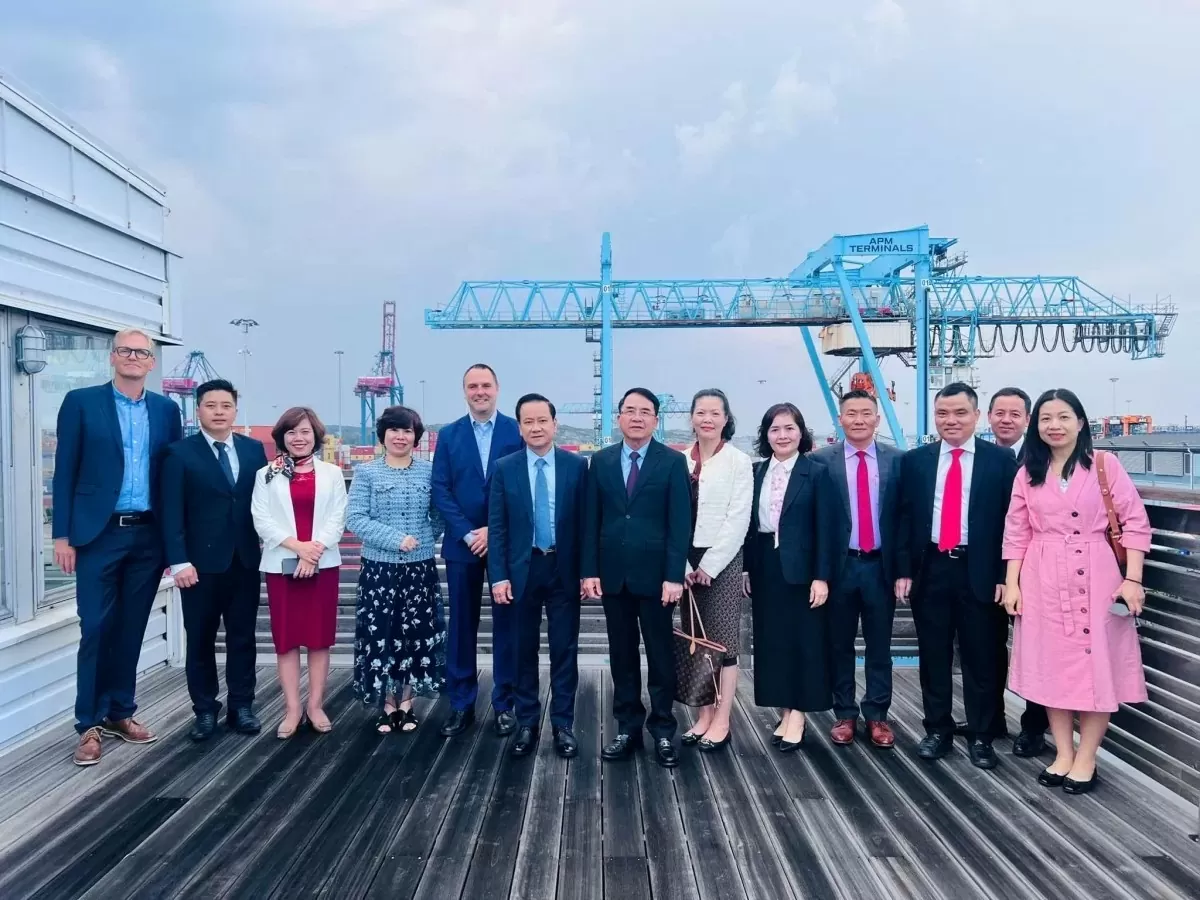 |
| Delegation from Hai Phong City and Saigon Newport Corporation visited Gothenburg port before signing a memorandum of understanding on cooperation in September 2024 (Photo: Vietnam Trade Office in Sweden) |
In addition, the Vietnam - Sweden Business Forum 2024 during the official visit of Vice President Vo Thi Anh Xuan marked a new step forward in logistics and maritime cooperation. At the forum, MSC - the world's leading container shipping line, announced the expansion of the SWAN service (a freight service via a maritime route through a number of ports, including Gothenburg and Vung Tau), directly connecting Gothenburg port and Vung Tau port from 2025. This will not only facilitate the flow of goods between the two countries but also strengthen the position of Vietnam and Sweden in the global supply chain.
Ms. Nguyen Thi Hoang Thuy added that cooperation in the field of technology continues to record outstanding achievements with the signing of a memorandum of understanding between Ericsson and Mobifone, establishing a 5G Innovation Center in Vietnam. This center is an important step in testing and developing 5G applications, promoting digital transformation and creating a platform for technology research and development projects between the two countries.
In particular, in 2024, the Vietnam - EU Free Trade Agreement (EVFTA) and the Investment Protection Agreement (EVIPA) will continue to be a solid legal basis to promote trade and investment cooperation. Sweden is currently Vietnam's largest trading partner in the Nordic region, while Vietnam is Sweden's leading import partner in Southeast Asia. Total bilateral trade turnover will reach 1.29 billion USD in 2023 and continue to grow steadily, with 1.3 billion USD in the first 11 months of 2024. Along with that, Sweden ranks 29th among countries investing in Vietnam, with 111 valid projects, total investment capital reaching 743 million USD.
Thanks to the strong implementation of trade promotion solutions, the import-export turnover between Vietnam and Sweden in the first 11 months of 2024 recorded a growth rate of 11.8%, reflecting a positive recovery in trade relations between the two countries. In particular, groups of goods such as machinery, spare parts, garment products, footwear, wooden furniture, plastics and seafood all grew steadily from 10-20%. Notably, Swedish businesses, including IKEA and H&M, have increased production orders in Vietnam thanks to the trend of shifting production from China to Southeast Asia. Taking advantage of incentives from EVFTA also creates a great advantage when tariffs and trade barriers are significantly reduced. This helps Vietnam's key products such as textiles, footwear and seafood become more competitive in price and quality.
Focus on product sustainability
Sharing about market trends, Ms. Nguyen Thi Hoang Thuy said that the Swedish market is witnessing a rapid change in consumer trends, focusing on sustainability, environmental protection and responsible consumption. Swedish consumers prioritize environmentally friendly products, low carbon emissions, using recycled or organic materials. The “lagom” (just enough) consumer movement encourages the choice of products with long life cycles, minimalism and resource saving.
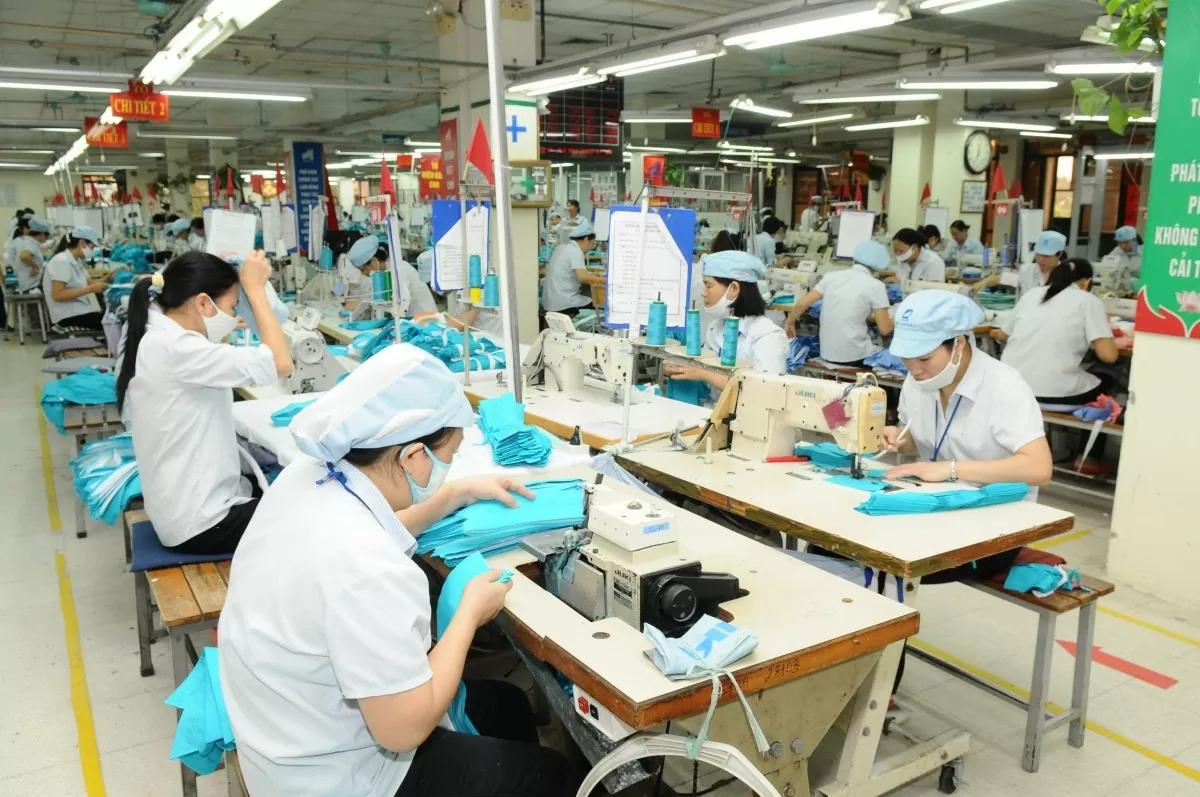 |
| Textiles and garments, one of the main export products to Sweden, also need to gradually transition to green to meet market standards (Photo: Can Dung) |
In addition, the circular economy is strongly promoted through EU policies such as the Circular Economy Action Plan, which requires packaging and products to be reusable or recyclable. By 2030, consumer products in Sweden will need to meet sustainable lifecycle standards.
“The Swedish market with its green, sustainable and high-tech consumption trends opens up many opportunities for Vietnamese businesses,” said Ms. Nguyen Thi Hoang Thuy. She also said that, first of all, the demand for organic agricultural products and processed foods continues to increase strongly. Products such as coffee, tea, and cashew nuts, which have already affirmed their quality in the EU market, have the potential to further expand their market share. In particular, processed seafood such as shrimp, pangasius and frozen seafood products are popular choices thanks to meeting food safety and origin standards. Developing products certified as organic or environmentally friendly will help Vietnamese businesses increase their competitive advantage.
Besides food, textiles and footwear are key Vietnamese products in Sweden. Products using recycled, organic materials or with sustainable production processes are highly appreciated by Swedish consumers. Investing in improving production technology, improving product quality and certifying international standards will open up opportunities to increase market share for Vietnamese businesses.
In addition, Sweden has a high demand for handicrafts and traditional, unique goods. Products such as furniture made from sustainable wood, rattan, and handmade home decorations are popular because of their environmental friendliness and rich cultural identity. This is a great opportunity for Vietnamese businesses to develop niche markets in Sweden.
Therefore, businesses need to apply international standards such as ISO 22000, HACCP, IFS to ensure food safety and meet the requirements of Sweden and the EU. In addition, promote Vietnamese branded products through trade promotion programs, international exhibitions and communication campaigns;
Businesses also need to transform their production processes towards sustainability, using organic materials and recycled packaging to meet the green consumption trend in Sweden. At the same time, cooperate directly with large retail chains: Seek opportunities to cooperate with large retail systems such as ICA, Coop and Axfood to bring Vietnamese products directly to the shelves.
| Taking advantage of the incentives from EVFTA has created a great advantage when tariffs and trade barriers are significantly reduced. This helps Vietnam's key products such as textiles, footwear and seafood become more competitive in price and quality. |
Source: https://congthuong.vn/thuong-mai-viet-nam-thuy-dien-tang-truong-118-367090.html


![[Photo] Prime Minister Pham Minh Chinh chairs the first meeting of the Steering Committee on Regional and International Financial Centers](https://vstatic.vietnam.vn/vietnam/resource/IMAGE/2025/4/3/47dc687989d4479d95a1dce4466edd32)
![[Photo] A brief moment of rest for the rescue force of the Vietnam People's Army](https://vstatic.vietnam.vn/vietnam/resource/IMAGE/2025/4/3/a2c91fa05dc04293a4b64cfd27ed4dbe)
![[Photo] Capital's youth enthusiastically practice firefighting and water rescue skills](https://vstatic.vietnam.vn/vietnam/resource/IMAGE/2025/4/3/3f8481675271488abc7b9422a9357ada)
![[Photo] Prime Minister Pham Minh Chinh chairs meeting after US announces reciprocal tariffs](https://vstatic.vietnam.vn/vietnam/resource/IMAGE/2025/4/3/ee90a2786c0a45d7868de039cef4a712)
![[Photo] General Secretary To Lam receives Japanese Ambassador to Vietnam Ito Naoki](https://vstatic.vietnam.vn/vietnam/resource/IMAGE/2025/4/3/3a5d233bc09d4928ac9bfed97674be98)
![[Photo] Ho Chi Minh City speeds up sidewalk repair work before April 30 holiday](https://vstatic.vietnam.vn/vietnam/resource/IMAGE/2025/4/3/17f78833a36f4ba5a9bae215703da710)
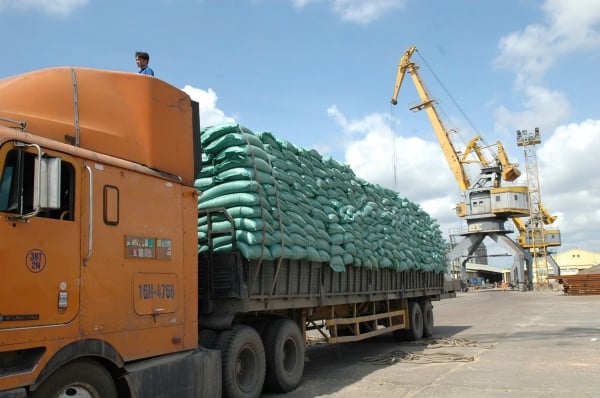
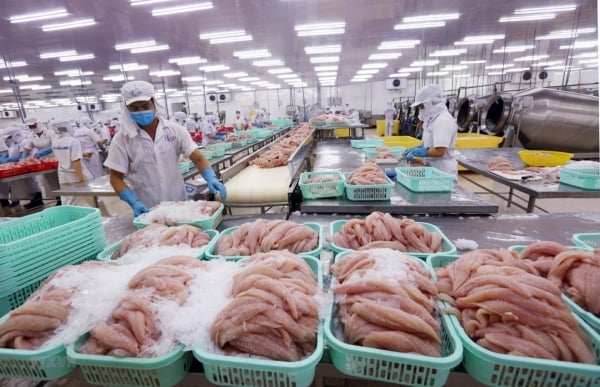
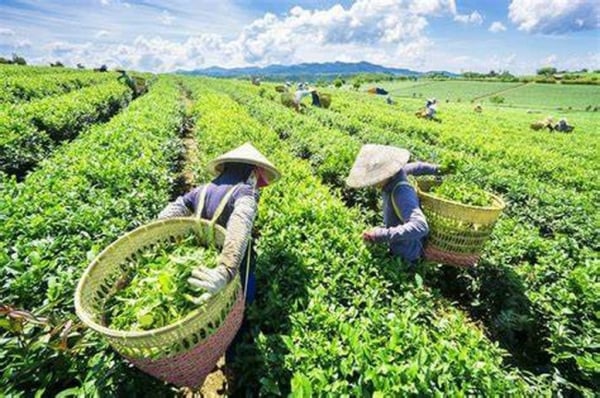
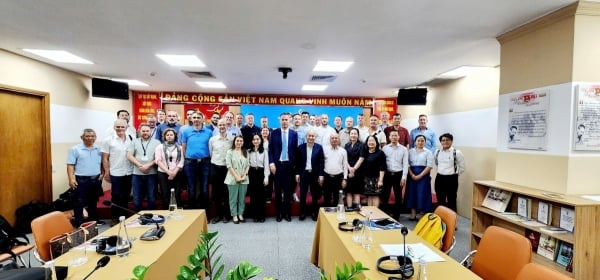
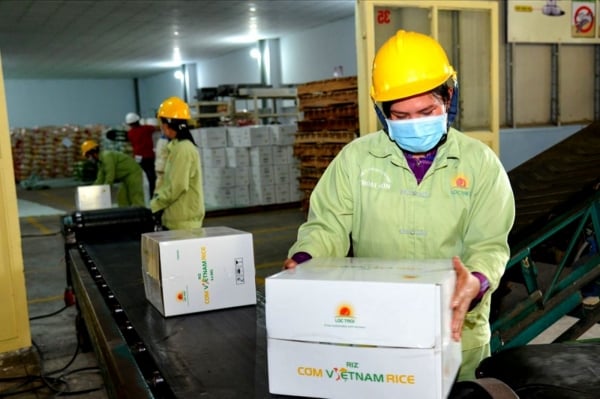
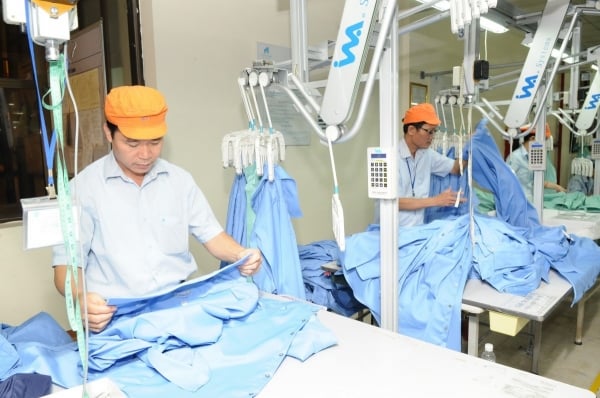

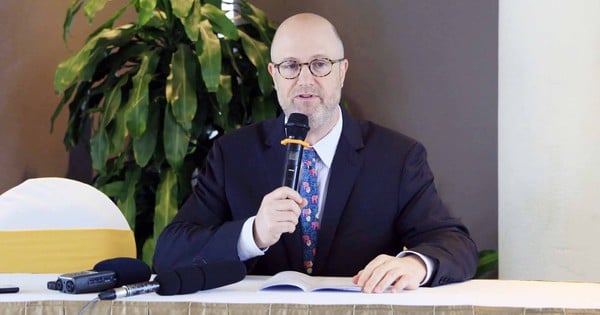
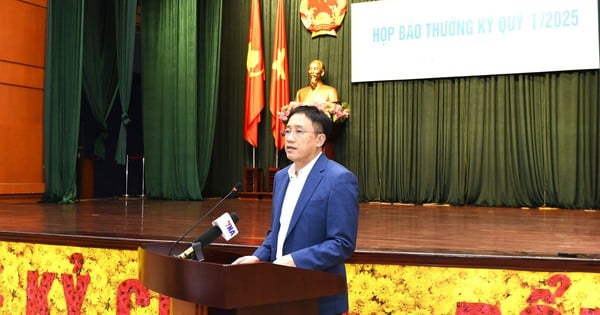
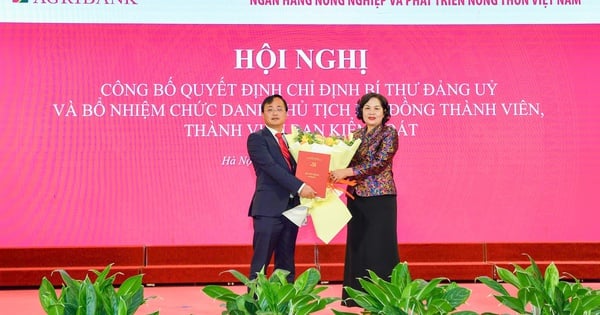
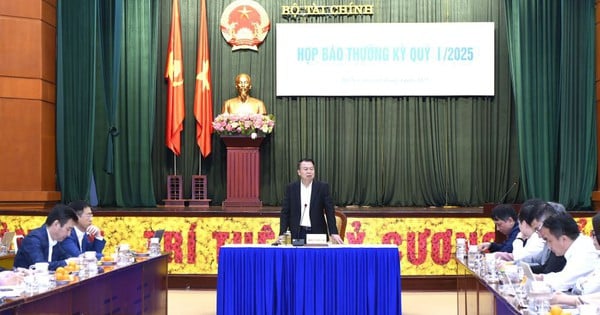





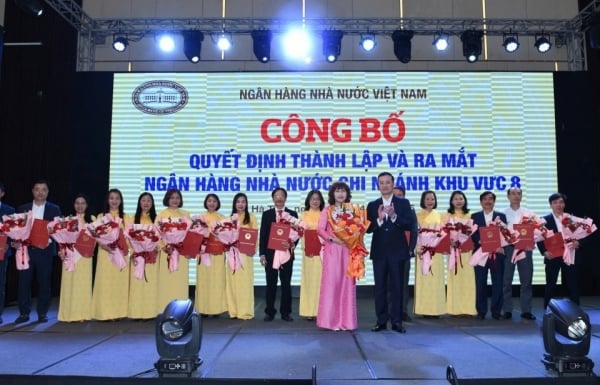




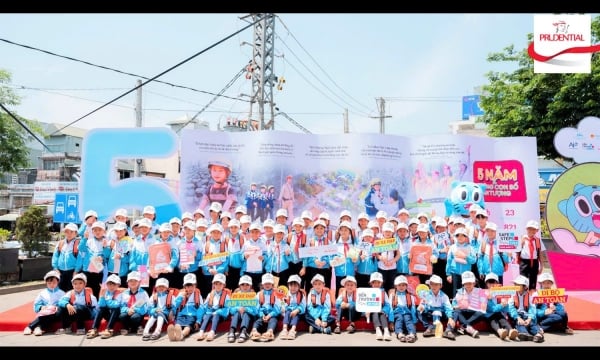




































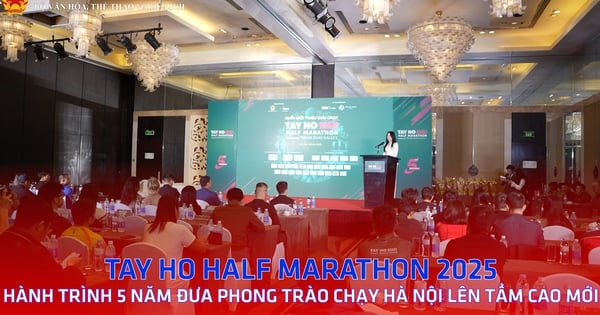







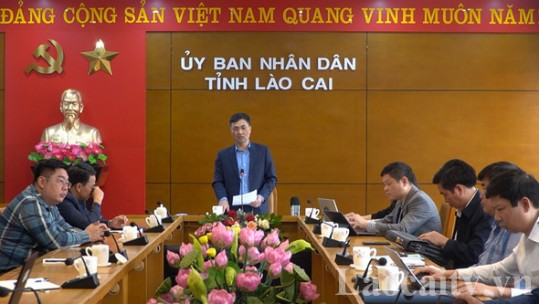

















Comment (0)